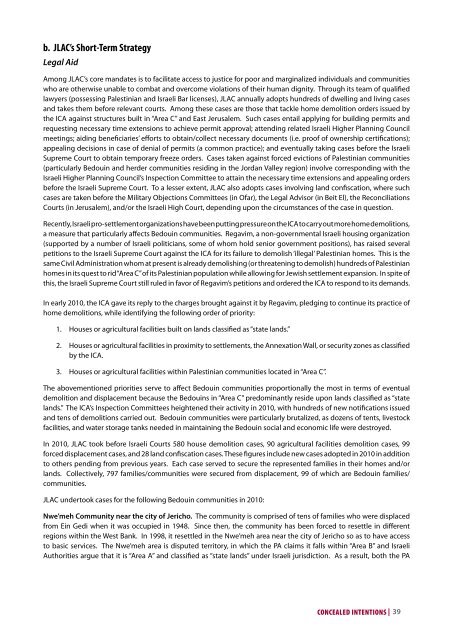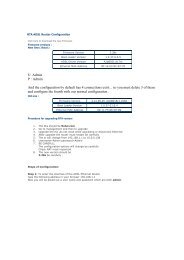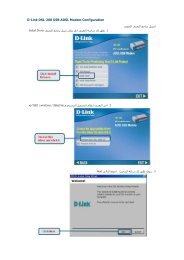Concealed Intentions- JLAC-.pdf
Concealed Intentions- JLAC-.pdf
Concealed Intentions- JLAC-.pdf
Create successful ePaper yourself
Turn your PDF publications into a flip-book with our unique Google optimized e-Paper software.
. <strong>JLAC</strong>’s Short-Term Strategy<br />
Legal Aid<br />
Among <strong>JLAC</strong>’s core mandates is to facilitate access to justice for poor and marginalized individuals and communities<br />
who are otherwise unable to combat and overcome violations of their human dignity. Through its team of qualified<br />
lawyers (possessing Palestinian and Israeli Bar licenses), <strong>JLAC</strong> annually adopts hundreds of dwelling and living cases<br />
and takes them before relevant courts. Among these cases are those that tackle home demolition orders issued by<br />
the ICA against structures built in “Area C” and East Jerusalem. Such cases entail applying for building permits and<br />
requesting necessary time extensions to achieve permit approval; attending related Israeli Higher Planning Council<br />
meetings; aiding beneficiaries’ efforts to obtain/collect necessary documents (i.e. proof of ownership certifications);<br />
appealing decisions in case of denial of permits (a common practice); and eventually taking cases before the Israeli<br />
Supreme Court to obtain temporary freeze orders. Cases taken against forced evictions of Palestinian communities<br />
(particularly Bedouin and herder communities residing in the Jordan Valley region) involve corresponding with the<br />
Israeli Higher Planning Council’s Inspection Committee to attain the necessary time extensions and appealing orders<br />
before the Israeli Supreme Court. To a lesser extent, <strong>JLAC</strong> also adopts cases involving land confiscation, where such<br />
cases are taken before the Military Objections Committees (in Ofar), the Legal Advisor (in Beit El), the Reconciliations<br />
Courts (in Jerusalem), and/or the Israeli High Court, depending upon the circumstances of the case in question.<br />
Recently, Israeli pro-settlement organizations have been putting pressure on the ICA to carry out more home demolitions,<br />
a measure that particularly affects Bedouin communities. Regavim, a non-governmental Israeli housing organization<br />
(supported by a number of Israeli politicians, some of whom hold senior government positions), has raised several<br />
petitions to the Israeli Supreme Court against the ICA for its failure to demolish ‘illegal’ Palestinian homes. This is the<br />
same Civil Administration whom at present is already demolishing (or threatening to demolish) hundreds of Palestinian<br />
homes in its quest to rid “Area C” of its Palestinian population while allowing for Jewish settlement expansion. In spite of<br />
this, the Israeli Supreme Court still ruled in favor of Regavim’s petitions and ordered the ICA to respond to its demands.<br />
In early 2010, the ICA gave its reply to the charges brought against it by Regavim, pledging to continue its practice of<br />
home demolitions, while identifying the following order of priority:<br />
1. Houses or agricultural facilities built on lands classified as “state lands.”<br />
2. Houses or agricultural facilities in proximity to settlements, the Annexation Wall, or security zones as classified<br />
by the ICA.<br />
3. Houses or agricultural facilities within Palestinian communities located in “Area C”.<br />
The abovementioned priorities serve to affect Bedouin communities proportionally the most in terms of eventual<br />
demolition and displacement because the Bedouins in “Area C” predominantly reside upon lands classified as “state<br />
lands.” The ICA’s Inspection Committees heightened their activity in 2010, with hundreds of new notifications issued<br />
and tens of demolitions carried out. Bedouin communities were particularly brutalized, as dozens of tents, livestock<br />
facilities, and water storage tanks needed in maintaining the Bedouin social and economic life were destroyed.<br />
In 2010, <strong>JLAC</strong> took before Israeli Courts 580 house demolition cases, 90 agricultural facilities demolition cases, 99<br />
forced displacement cases, and 28 land confiscation cases.These figures include new cases adopted in 2010 in addition<br />
to others pending from previous years. Each case served to secure the represented families in their homes and/or<br />
lands. Collectively, 797 families/communities were secured from displacement, 99 of which are Bedouin families/<br />
communities.<br />
<strong>JLAC</strong> undertook cases for the following Bedouin communities in 2010:<br />
Nwe’meh Community near the city of Jericho. The community is comprised of tens of families who were displaced<br />
from Ein Gedi when it was occupied in 1948. Since then, the community has been forced to resettle in different<br />
regions within the West Bank. In 1998, it resettled in the Nwe’meh area near the city of Jericho so as to have access<br />
to basic services. The Nwe’meh area is disputed territory, in which the PA claims it falls within “Area B” and Israeli<br />
Authorities argue that it is “Area A” and classified as “state lands” under Israeli jurisdiction. As a result, both the PA<br />
39





